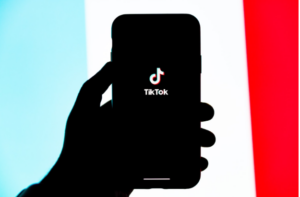
TikTok is one of the world’s most downloaded apps, surpassing over 3.5 billion downloads earlier this year. As it goes with many popular social media apps, TikTok privacy scandals have popped up left and right. In recent years, it’s gotten so bad that the app is now being considered a national security risk and even being banned or restricted in multiple countries. So here’s a list of some countries that have issued a TikTok ban or have placed restrictions on the app.
Countries with TikTok bans or restrictions
| Countries | Ban/Restrictions |
| Afghanistan | Banned in entirety (April 2022) |
| India | Banned for all users (June 2020) |
| Indonesia | Banned for all users (July 2018, lifted 10 days later, banned again in July 2020) |
| Pakistan | Was banned multiple times for all users but currently free (banned October 2020, lifted 10 days later, banned in March 2021 lifted in April 2021, banned again in June lifted 3 days later, banned again in July 2021, lifted 4 months later) |
| Taiwan | Banned in the public sector (government devices only, December 2022) |
| Australia | Banned in government devices (June 2022) |
| United Kingdom | Banned for government employees (March 2023) |
| United States | Banned for federal government employees (April 2023) |
| Montana – United States | Banned in entirety (June 2023) |
How Did We Get Here?
Tiktok has been involved in lots of controversy over the past few years. From privacy scandals, to content moderation issues, and even political censorship. The scandals keep racking up to the point that many countries consider TikTok a national security risk. As a result, this has lead to a TikTok ban or restrictions in multiple countries.
Mid 2021, TikTok made significant changes to its Terms of Service. This allowed the collection of user data such as faceprints, expressions, and reactions to content. The Terms of Service gave permission to record users’ voices and track their location data, even when location services were turned off. Furthermore, TikTok aimed to track user’s online activities and keystrokes, among other undisclosed practices.
In 2022, TikTok was fined £12.7 million by the UK’s Information Commissioner’s Office (ICO) for failing to protect the personal data of children under the age of 13. The ICO found that TikTok had not done enough to verify the ages of its users and had not taken steps to prevent children from accessing inappropriate content. In the United States, too, TikTok was fined $92 million by the US FTC in 2021 for unlawfully collecting personal data from children under 13.
Other Bad Practices
Upon examination, it was revealed that TikTok and YouTube share a significant amount of user data with third-party entities. However, while YouTube’s primary third party is Google, which aims to enhance its services (although some questionable practices may be involved), TikTok shares user data with multiple unidentified third parties.
Another instance of Tiktok’s bad practices occurred in 2019. TikTok was found to be censoring videos that mentioned the Uyghur genocide in China. The company later apologized for the censorship and said that it would no longer remove videos about the topic.
All these instances (and plenty more) of TikTok being caught red-handed mismanaging user data and illegally collecting data are what has led to the US Congress taking serious steps to protect user data and sensitive government information. And with how things are going, a nationwide TikTok ban seems more and more likely.
Potential Impact of TikTok Ban
In the five years since TikTok launched, it has become one of the most popular apps on the planet. It has amassed over 3.5 billion downloads, with the United States being one of the key markets for the app. So a ban on the app in the United States would result in many young people losing their communities, their entertainment, and a platform many use as a way to express themselves.
Creators would lose a platform for sharing their content, one of the best platforms for building their audiences, and even a source of income for some. Businesses would also lose a way to reach new customers and promote their products and services. On top of that, businesses also use Tik Tok to generate leads and drive sales. Social media in general, but especially Tik Tok, is also a great way for businesses to connect with customers and build relationships. A nation wide Tik Tok ban would be a big hit for businesses of all sizes in the US.
In addition, the US economy will also feel the ripple effect if TikTok is banned. The app generates billions of dollars in advertising revenue each year, and it supports a large number of jobs in the US. A ban on TikTok would lead to job losses in the tech industry as well as in the creative and marketing industries. It would also hurt the US economy by reducing the amount of money that consumers spend on products and services that are advertised on TikTok.
Conclusion
The potential ban of TikTok in the United States is a complex issue with no easy answers. There are advantages and disadvantages to consider, as well as a number of legal and practical challenges. Ultimately, the decision of whether or not to ban TikTok is one that will need to be made by the government with input from the public and experts.







